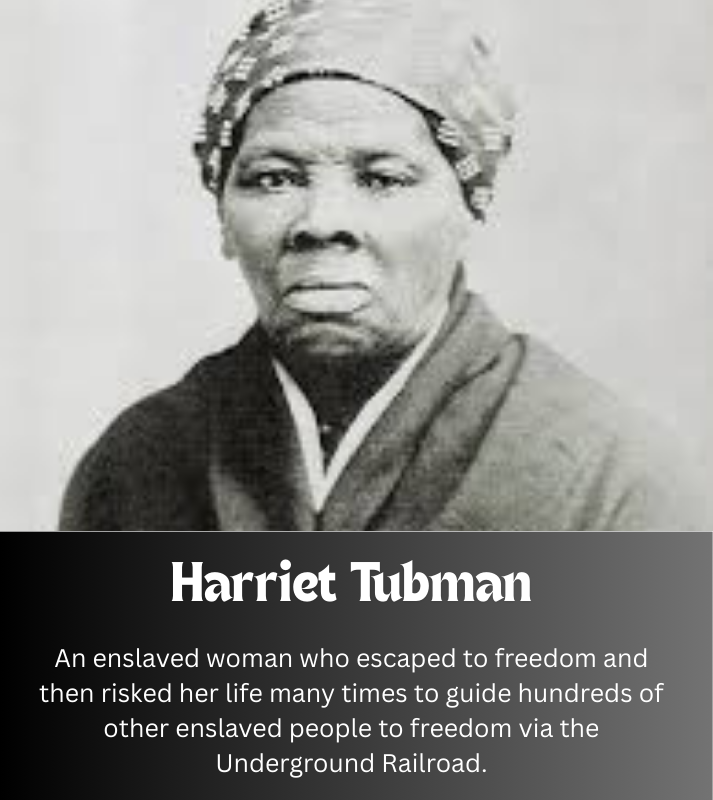Harriet Tubman
The "Moses" of Her People


Harriet Tubman was an American abolitionist and political activist who escaped from slavery and then dedicated her life to helping others do the same. Her courage and tireless efforts made her one of the most famous and effective "conductors" on the Underground Railroad, earning her the nickname "Moses."
From Bondage to Freedom
Born Araminta Ross in Dorchester County, Maryland, around 1822, Harriet was one of nine children born into slavery. From an early age, she was subjected to the brutality of the system. She was hired out to various masters and suffered a traumatic head injury at the age of 13 when an overseer threw a metal weight at another enslaved person and it struck her instead. The injury caused lifelong headaches, seizures, and narcoleptic episodes. In 1849, facing the possibility of being sold to a different plantation, Harriet made the perilous decision to escape. She traveled at night, guided by the North Star, and with the assistance of a network of sympathetic white and Black people who provided her with shelter and food. She eventually reached Philadelphia, a free state, and tasted the sweet air of freedom for the first time.
Conductor on the Underground Railroad
Though she was finally free, Harriet could not rest while her family and friends remained in bondage. She soon made the decision to risk her life to return to Maryland and lead others to freedom. The Underground Railroad was not an actual railroad but a secret network of safe houses and routes used by abolitionists and formerly enslaved people to help others escape.
Harriet Tubman: The "Moses" of Her People
Between 1850 and 1860, Harriet Tubman made approximately 13 perilous missions back to Maryland. She personally guided about 70 enslaved people, including her family and friends, to freedom in the North and Canada. She was incredibly resourceful, using disguises and knowledge of the terrain to avoid capture. She was also armed, not only for protection from slave catchers but also to prevent any of her "passengers" from turning back and endangering the entire group. Her unwavering determination and success made her a legend, and slaveholders in the South offered a substantial reward for her capture, though they had no idea she was the mastermind behind the escapes. She was a master of secrecy and never lost a single "passenger" on her journeys.
A Legacy of Activism
Harriet Tubman's contributions to the fight for human rights did not end with the Civil War. During the war, she served the Union Army as a scout, spy, and nurse, and became the first woman to lead an armed expedition in a U.S. military operation. The Combahee River Raid, which she planned and led, liberated more than 700 enslaved people in South Carolina. After the war, she became a vocal advocate for women's suffrage and continued her humanitarian work, establishing the Harriet Tubman Home for the Aged to care for elderly and indigent African Americans. Harriet Tubman’s life is a powerful symbol of resilience, sacrifice, and the relentless pursuit of freedom and justice for all.
Discover the extraordinary and unique stories.
Inspire
© 2025. All rights reserved.
